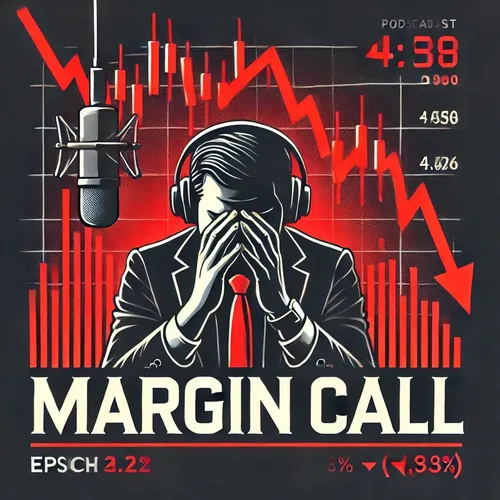Margin Calls: Leveraged Trading's Peril - Amplifying Gains and Losses, Forced Closures Loom.
- Author
- Quiet. Please
- Published
- Sat 30 Aug 2025
- Episode Link
- https://www.spreaker.com/episode/margin-calls-leveraged-trading-s-peril-amplifying-gains-and-losses-forced-closures-loom--67561265
Margin calls are a critical aspect of leveraged trading that can suddenly force traders to add money to their accounts or close positions to cover potential losses. Using leverage means borrowing funds to control a larger position than the initial deposit, amplifying both gains and losses. When the value of a trade moves against a trader and the account equity drops below the required maintenance margin—the minimum amount set by brokers—the broker will issue a margin call. This is effectively a demand for more funds to be deposited or for positions to be closed out to restore the minimum required margin. Failing to meet this call can lead to the broker automatically liquidating positions, sometimes at a substantial loss, in order to protect their own exposure.
Short positions bring another layer of complexity. When taking a short position, a trader sells borrowed assets hoping to buy them back later at a lower price, profiting from the decline. If the price rises instead of falling, the losses can become theoretically unlimited, since there's no cap on how high a price can go. This risk is why margin requirements for short positions are typically strict and closely monitored by both traditional and crypto brokers. Events where a rapid price rise occurs—whether due to positive news, a short squeeze orchestrated by market participants, or unexpected market moves—can force short sellers to quickly buy back the asset, driving its price higher in what is known as a "short squeeze." This phenomenon turns into a feedback loop of forced buying and skyrocketing losses for short sellers, particularly for those on margin.
In recent years, cases like the GameStop trading frenzy have illustrated the danger of large, crowded short positions coming under pressure. Retail investors coordinated to drive up the price, triggering margin calls to hedge funds with extensive short bets. According to coverage from the United States Court of Appeals for the Ninth Circuit, this caused the short sellers to scramble for liquidity—buying back stock at higher and higher prices, deepening their losses. Similar margin-driven turmoil has played out in the cryptocurrency world, where high leverage enables traders to place large short bets with relatively little capital. When sharp price volatility hits, exchanges liquidate short positions at market prices once the margin requirements are breached, often at a significant loss to the trader.
Non-bank financial institutions, such as hedge funds and investment funds, have become increasingly central to the discussion about margin calls and systemic risk. Research from the Bank Policy Institute notes that during periods of market stress, like the COVID-19-induced March 2020 market shock, margin calls triggered a wave of forced asset sales by funds struggling to meet liquidity demands. The effect cascaded throughout the financial system, showing how margin-driven events can have broader market consequences when institutions are not prepared for rapid liquidity calls.
Managing margin risk is essential. Financial experts stress monitoring leverage levels, understanding broker policies about margin calls and stop-out levels, and using risk controls like stop-loss orders. In highly volatile markets, reducing leverage and maintaining a liquidity buffer can make the difference between surviving a slump and facing catastrophic forced closures.
Thank you for tuning in and don't forget to subscribe. This has been a Quiet Please production, for more check out quietplease dot ai.
For more http://www.quietplease.ai
Get the best deals https://amzn.to/3ODvOta
